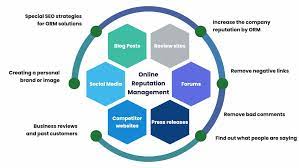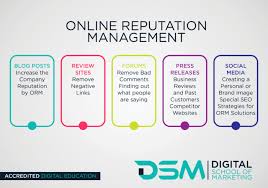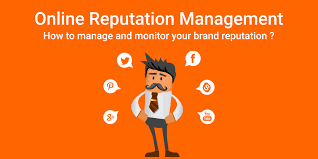Mastering Brand Reputation: Key to Business Success in the UK
The Importance of Brand Reputation in Today’s Business Landscape
In today’s highly competitive business environment, brand reputation plays a crucial role in the success of any company. A strong brand reputation can differentiate a business from its competitors, build trust with customers, and ultimately drive growth and profitability.
Brand reputation is how a company is perceived by its customers, stakeholders, and the general public. It encompasses various elements such as customer service, product quality, corporate social responsibility, and overall brand image. A positive brand reputation can lead to increased customer loyalty, higher sales, and a competitive advantage in the market.
On the other hand, a negative brand reputation can have serious consequences for a business. In today’s digital age, news travels fast, and one misstep or negative review can quickly tarnish a company’s image. This can result in loss of customers, decreased revenue, and long-term damage to the brand’s credibility.
Building and maintaining a strong brand reputation requires consistent effort and attention to detail. Companies need to deliver on their promises, provide excellent customer service, be transparent in their communications, and actively engage with their audience. By prioritising reputation management as part of their overall strategy, businesses can safeguard their brand against potential risks and crises.
Furthermore, a positive brand reputation can also attract top talent to a company. Employees want to work for companies that are well-regarded in the industry and have a strong ethical foundation. A good reputation can help attract skilled professionals who are essential for driving innovation and growth within an organisation.
In conclusion, brand reputation is not just about how a company is perceived; it is about building trust with customers, stakeholders, and employees. Businesses that invest in managing their reputation effectively are more likely to succeed in today’s competitive marketplace. By prioritising brand reputation as a key strategic asset, companies can create long-term value and sustainable growth for their business.
Understanding Brand Reputation: Key Questions and Insights for Businesses
- What is brand reputation?
- Why is brand reputation important for businesses?
- How can a company build a strong brand reputation?
- What are the consequences of a negative brand reputation?
- How does brand reputation impact customer loyalty?
- What role does social media play in shaping brand reputation?
- How can companies monitor and manage their brand reputation online?
- Can a damaged brand reputation be repaired? If so, how?
- What are some examples of companies with excellent brand reputations?
What is brand reputation?
Brand reputation refers to how a company is perceived by its customers, stakeholders, and the general public. It encompasses various aspects such as customer service, product quality, corporate social responsibility, and overall brand image. A strong brand reputation can differentiate a business from its competitors, build trust with customers, and ultimately drive growth and profitability. On the other hand, a negative brand reputation can have serious consequences for a business, leading to loss of customers, decreased revenue, and long-term damage to the brand’s credibility. Managing brand reputation effectively is essential in today’s competitive business landscape to ensure sustained success and positive perception in the market.
Why is brand reputation important for businesses?
Brand reputation is crucial for businesses as it directly impacts consumer perception, trust, and loyalty. A positive brand reputation not only differentiates a company from its competitors but also builds credibility and goodwill among customers. It influences purchasing decisions and can drive sales growth. Additionally, a strong brand reputation attracts top talent, fosters positive relationships with stakeholders, and ultimately contributes to long-term business success. Conversely, a negative brand reputation can have detrimental effects on a company’s bottom line, leading to loss of customers, revenue, and market share. Therefore, prioritising brand reputation is essential for businesses to thrive in today’s competitive landscape.
How can a company build a strong brand reputation?
Building a strong brand reputation requires a strategic and concerted effort by a company. To establish a positive brand image, businesses should focus on delivering exceptional products or services that meet or exceed customer expectations. Consistent communication that conveys the company’s values, mission, and commitment to quality is essential in shaping how the brand is perceived. Engaging with customers through various channels, addressing feedback promptly, and resolving issues effectively can help build trust and loyalty. Additionally, maintaining transparency, demonstrating corporate social responsibility, and upholding ethical standards are key factors in cultivating a strong brand reputation that resonates with stakeholders and the wider community.
What are the consequences of a negative brand reputation?
A negative brand reputation can have significant consequences for a business. It can lead to loss of customer trust and loyalty, resulting in decreased sales and revenue. Negative word-of-mouth can spread quickly in today’s interconnected world, damaging the brand’s credibility and making it harder to attract new customers. A tarnished reputation can also impact relationships with stakeholders, including investors, partners, and employees. Additionally, a negative brand reputation can make it challenging to recruit top talent and retain skilled employees, as people are less likely to want to be associated with a company that has a poor public image. Overall, the consequences of a negative brand reputation can be far-reaching and long-lasting, affecting every aspect of a business’s operations and success.
How does brand reputation impact customer loyalty?
Brand reputation plays a significant role in influencing customer loyalty. When customers perceive a brand positively and trust its products or services, they are more likely to develop a sense of loyalty towards that brand. A strong brand reputation can enhance customer satisfaction, increase confidence in the brand’s offerings, and foster long-term relationships with customers. Positive experiences and interactions with a reputable brand can lead to repeat purchases, word-of-mouth recommendations, and ultimately, higher levels of customer loyalty. On the other hand, a negative brand reputation can erode trust and credibility, resulting in decreased customer loyalty and potential loss of business to competitors. Therefore, maintaining a positive brand reputation is essential for building and sustaining customer loyalty in today’s competitive marketplace.
What role does social media play in shaping brand reputation?
Social media plays a significant role in shaping brand reputation in today’s digital age. With the widespread use of social platforms, companies have a direct channel to engage with their audience, receive feedback, and manage their brand image. Positive interactions on social media can enhance brand reputation by showcasing transparency, responsiveness, and authenticity. Conversely, negative comments or controversies can quickly damage a brand’s reputation if not addressed promptly and effectively. Social media acts as a powerful tool for companies to build trust, loyalty, and credibility with their audience, making it essential for businesses to actively monitor and manage their online presence to maintain a positive brand reputation.
How can companies monitor and manage their brand reputation online?
Monitoring and managing brand reputation online is essential for companies in today’s digital age. To effectively track and maintain their brand image, businesses can employ various strategies. One common approach is to utilise social media monitoring tools to track mentions, comments, and reviews about the brand across different platforms. Companies can also engage with their audience proactively, respond to feedback promptly, and address any negative comments or reviews professionally. Additionally, monitoring online reviews and ratings on third-party websites can provide valuable insights into customer perceptions. By actively monitoring and managing their brand reputation online, companies can build trust with their audience, mitigate potential risks, and maintain a positive image in the competitive digital landscape.
Can a damaged brand reputation be repaired? If so, how?
A damaged brand reputation can indeed be repaired, but it requires a strategic and concerted effort from the company. To begin the process of repairing a damaged brand reputation, a thorough assessment of the reasons behind the damage must be conducted. This involves identifying the root causes of the negative perception and understanding how it has impacted stakeholders. Once the issues are identified, a proactive communication strategy must be developed to address them transparently and authentically. This may involve issuing public apologies, implementing corrective actions, and demonstrating a commitment to positive change. Rebuilding trust with customers, stakeholders, and the public is essential, and this can be achieved through consistent delivery on promises, exceptional customer service, and ongoing engagement to showcase the company’s values and integrity. Over time, with dedication and perseverance, a damaged brand reputation can be repaired through genuine efforts to restore credibility and rebuild relationships with key audiences.
What are some examples of companies with excellent brand reputations?
When considering examples of companies with excellent brand reputations, several notable names come to mind. Apple is often praised for its innovative products, sleek design, and customer loyalty. The company’s commitment to quality and user experience has helped establish it as a leader in the technology industry. Another example is Nike, known for its strong brand identity, impactful marketing campaigns, and dedication to social responsibility. Nike’s ability to connect with consumers on a deeper level through storytelling and purpose-driven initiatives has solidified its reputation as a trusted and respected brand. Additionally, companies like Google, Amazon, and Disney are also frequently cited for their exceptional brand reputations built on innovation, customer focus, and consistent delivery of value to their stakeholders.







